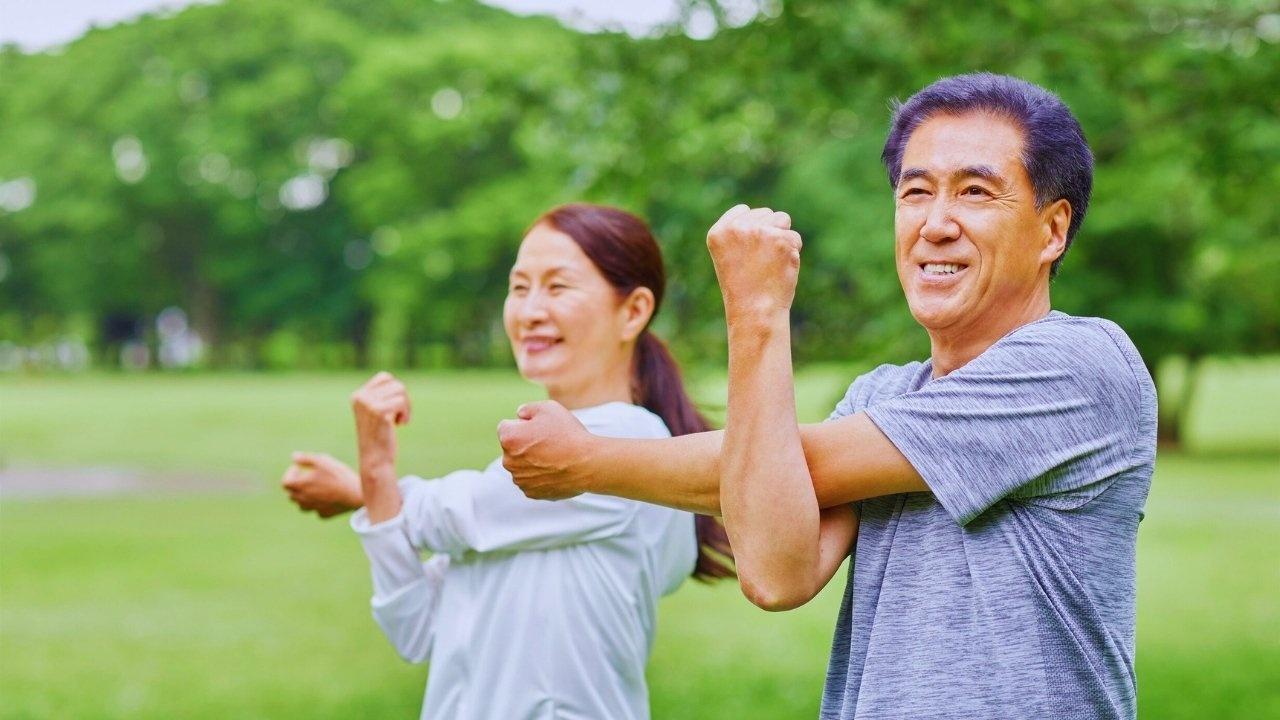
Post by : Anees Nasser
Once upon a time, true healing happened outside, amid the natural world. Fast forward to 2025, and this age-old practice is making a comeback. Doctors and health experts are increasingly acknowledging that spending time outdoors can rejuvenate both mind and body, often more effectively than medication alone.
This revival isn’t just a fad; outdoor therapy—known as nature therapy—is now supported by evidence showing its link to decreased anxiety, improved sleep, enhanced heart health, elevated mood, and sharper cognitive abilities. Instead of merely advising patients to relax, professionals are prescribing outdoor activities such as walks in vibrant parks, weekly hikes, forest-bathing sessions, and community gardening efforts.
In our hyper-digital world, dominated by screens, there’s a strong movement back to nature—embracing trees, soil, sunlight, the sounds of birds, tranquil waters, and crisp air.
Today’s urban dwellers often find themselves working indoors, commuting in confined spaces, and seeking leisure in front of screens. Natural environments, once inherently accessible, now require conscious effort to access.
This disconnect from the natural world has led to increased stress, sleep difficulties, eye strain, and a lack of physical activity. As our species has evolved in the outdoors, our bodies remain wired for sunlight, motion, and natural sensory experiences.
The weight of digital demands can lead to a constant barrage of information, fostering a culture of comparison. This relentless drive for productivity has resulted in heightened anxiety, with many young people facing chronic stress at an earlier age than before. The correlation between mental health issues and lack of nature exposure is becoming ever clearer.
Density of population does not equate to authentic human connection. People, even when surrounded by millions, report feelings of isolation. Nature—especially enjoyed in groups—serves as a remedy, driving the rise of hiking clubs, nature retreats, outdoor meditation gatherings, and community gardens.
Outdoor therapy is more than just “being outside.” It is structured and often facilitated. It encompasses:
Mindful hikes in nature
Forest immersion (engaging deeply with nature)
Prescribed park visits
Water-based therapies (river walks, lakeside views)
Outdoor yoga practices
Gardening sessions
Adventure activities (camping, rock climbing)
Wildlife viewing excursions
Cultural nature paths
The guiding principle is simple: when our environment nurtures the nervous system, our physical health naturally follows.
Research shows that exposure to nature can diminish cortisol levels, the stress hormone. Even brief outdoors experiences (10-20 minutes) can yield observable relaxation responses.
Natural environments stimulate the parasympathetic nervous system—our “rest and digest” mode—resulting in reduced heart rates and blood pressure, while fostering serotonin and dopamine release for improved mood.
Trees release phytoncides, which boost immune function. Regular engagement with nature increases natural killer cell production, enhancing resistance to illnesses.
Time spent in nature alleviates mental fatigue. Attention spans and creativity noticeably improve, particularly for children and professionals grappling with burnout.
Natural light helps regulate circadian rhythms, while outdoor activities curtail internal stress and racing thoughts, thereby enhancing sleep quality without reliance on medications.
More doctors are incorporating nature-based prescriptions into their wellness approach for:
Managing anxiety and stress
Addressing mild depression
Resolving sleep issues
Alleviating chronic pain
Controlling hypertension
Dealing with ADHD and focus challenges
Nature acts as a complementary force to medication, reinforcing a foundation for healing.
Businesses, particularly in technology sectors, are embracing outdoor breaks, team activities in nature, and wellness retreats to foster creativity and mitigate burnout.
Schools are reviving outdoor learning and play, developing nature clubs, and hosting ecologically-focused activities to enhance student well-being and learning outcomes.
Municipal governments are investing in parks, greenways, cycling paths, waterfront areas, and rooftop gardens, recognizing that vibrant cities require green, accessible spaces.
Originating from Japan’s “shinrin-yoku,” forest bathing has gained popularity globally as guided walks encourage individuals to slow down and reconnect with nature.
Once blamed for disconnection, social media now facilitates communities passionate about nature exploration, sustainable adventures, wildlife observation, and outdoor documentation. People are uncovering local parks and serene trails through shared experiences.
Demand for eco-friendly travel, camping sites, and holistic retreats is growing, shifting from rapid tourism to immersive, slow travel experiences.
Outdoor therapy doesn’t necessitate expansive forests; even urban environments can provide relief:
A stroll through a local park
Reading a book under a tree
Morning sunlight sessions on a balcony
Practicing yoga on a terrace
Maintaining potted plants or herbs
Family outings in natural settings
Weekday strolls and weekend excursions
Engagement with green spaces is driven by intention, not merely distance.
Childhood was often synonymous with outdoor play, but today’s children may be more attuned to digital landscapes. Engagement with nature can bolster:
Motor skills and balance development
Social and emotional growth
Creative thought and curiosity
Academic focus
Stress coping abilities
Immune system resilience
This awakening is reflected in the return of outdoor clubs, play areas, farm visits, and sporting activities.
Young individuals facing academic pressures, career uncertainties, and social expectations are rediscovering outdoor therapy as their grounding force. Hiking, cycling, sunrise yoga, and nature-centered communities are becoming essential parts of their lifestyle, enhancing their emotional well-being.
Time spent in nature helps mitigate the relentless pursuit of digital perfectionism. The simplicity of the outdoors invites individuals to breathe, move, bask in the sunlight, listen to birdsong, and gaze at the sky, restoring their sense of humanity.
10-minute walk for sunlight
Balcony stretches with tea
Evening park relaxation
Walking instead of driving for local errands
Saturday morning nature hikes
Family picnics in the park
River walks
Gardening activities
Excursions to trails or highlands
Camping adventures in the forest
Beach outings
Morning bird-watching sessions
Nature’s requirements are not about intensity; they’re about consistency.
Nature therapy represents a lasting transformation within wellness, healthcare, tourism, and lifestyle choices. Anticipate more integration in the coming years, such as:
Incorporating nature prescriptions in hospitals
Designated forest-therapy areas within urban settings
Corporate budgets for outdoor wellness initiatives
Mindfulness programs in academic institutions
Public awareness campaigns for “green hours”
Emergence of tech-free vacation cultures
Health and wellness transcend digital metrics; they now embrace a balanced lifestyle interwoven with nature.
For years, society prioritized convenience and technology. The return to nature signifies a truth: humans thrive amidst the Earth, sky, sun, wind, water, soil, trees, and expansive vistas.
Outdoor therapy is not about escaping modernity; it serves as a remedy for disconnection. In nature, stillness isn’t chased—it’s simply felt. The body balances, the mind eases, focus refines, and stress diminishes effortlessly.
This rejuvenated wellness revolution isn’t a futuristic notion; it’s a primal return to origins, signaling a quiet yet powerful shift.
This article serves as a general perspective on outdoor therapy and should not replace professional medical advice. Always consult healthcare providers before making changes to treatment plans.










Paramount+ Wins Five-Year Deal to Stream PBR’s 'Unleash the Beast'
Paramount+ has inked a five-year streaming agreement to carry PBR's Unleash the Beast live from Dece

Zohran Mamdani's Historic NYC Win Marked by Bollywood Finale
Zohran Mamdani captured the New York mayoralty — the city's first Muslim and South Asian mayor — and

Indian Tennis Veteran Rohan Bopanna Ends Illustrious Career
Rohan Bopanna retires from tennis at 45 after winning two Grand Slams, becoming world number one, an

Babar Azam Becomes Top Run Scorer In T20I Cricket History
Pakistan’s Babar Azam has overtaken India’s Rohit Sharma to become the highest run-scorer in men’s T

BTS Comeback 2026 Group Plans Biggest-Ever Global Tour
BTS is set for a long-awaited comeback in 2026, followed by a massive 65-city world tour. Fans hope

India Stuns Australia to Reach Women’s World Cup Final
India shocked seven-time champions Australia in the Women’s World Cup semi-final, chasing 339 runs w